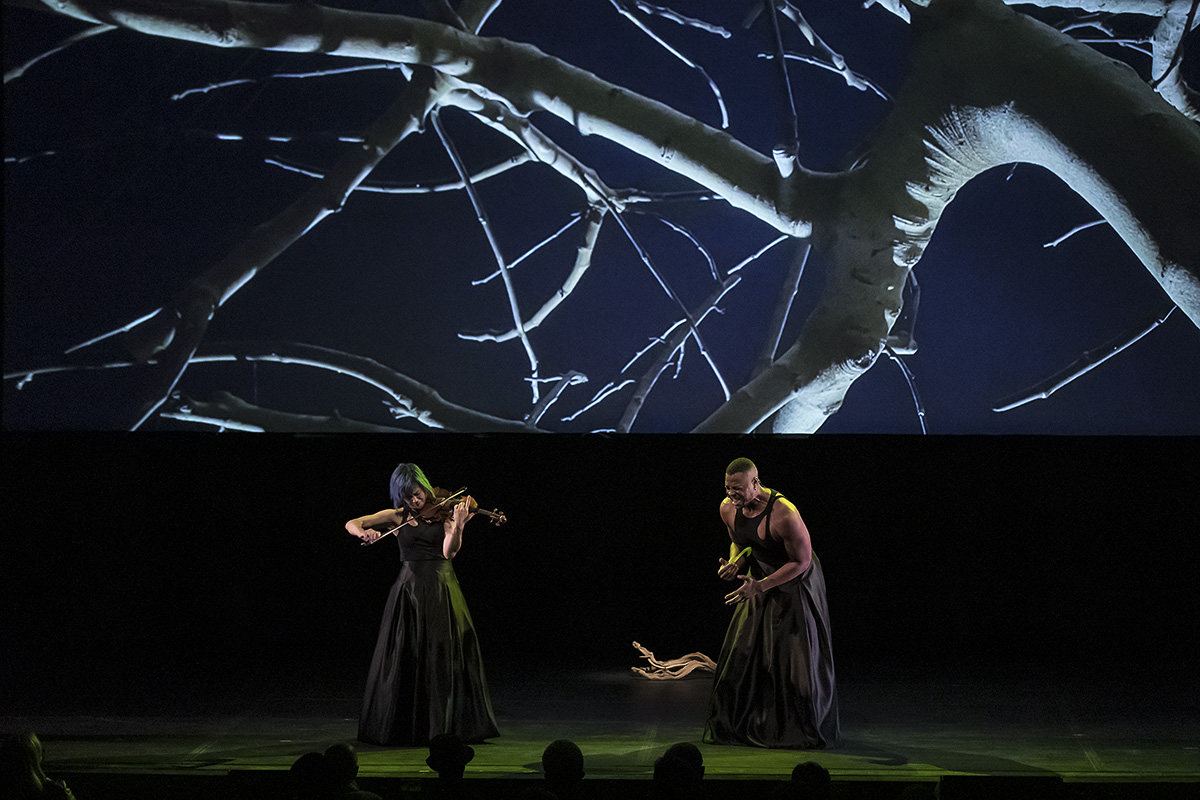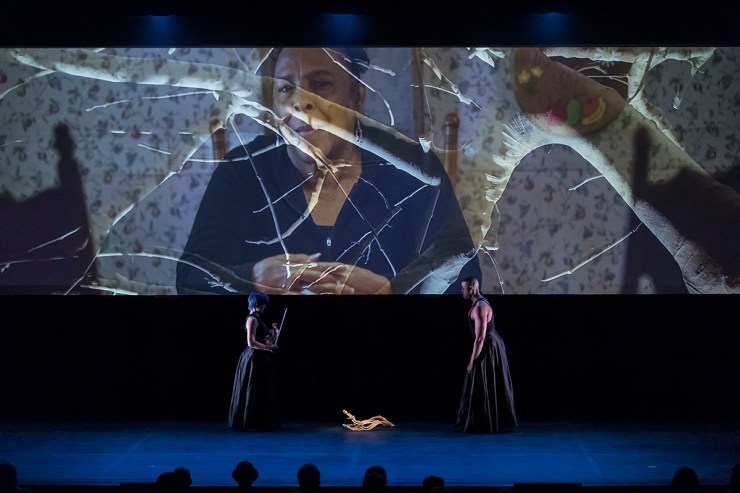Review | Jennifer Koh and Davóne Tines, ‘Everything Rises’
UCSB Arts & Lectures Commissions Innovative New Work from Koh and Tines

This innovative program commissioned by UCSB Arts & Lectures offered the audience an opportunity to see what lies behind the facade of classical performance for two of the most original artists in contemporary music. Jennifer Koh, fresh off winning a Grammy for Best Classical Instrumental Solo, and Davóne Tines, one of the most in-demand performers in opera, have been working on Everything Rises for six years.
The piece began with a moment that recalled the one six years ago when the pair first met eyes backstage in Paris while rehearsing a work by Kaija Saariaho. Locking eyes in what they described as a “connecting glance,” Koh and Tines began a dialogue that led them to discover multiple parallels in their experiences as people of color participating in the highly disciplined world of classical music performance.
In the show, this moment follows the projection of a video of the young Koh’s prize-winning performance at an international Tchaikovsky competition. As the mature violinist stands by, observing her younger self, Tines joins her on stage, dressed in the traditional black-tie worn by virtually all classical musicians. Koh wears a gown, the equally standard apparel for female classical performers. Later in the evening, once the journey to revelation has begun, Tines reappears in a dress that’s cut to mirror the one that Koh is wearing. This costume choice is only the beginning of what pours forth about these performers and how they feel most comfortable.
This edition of ON Culture was originally emailed to subscribers on August 13, 2024. To receive Leslie Dinaberg’s arts newsletter in your inbox on Fridays, sign up at independent.com/newsletters.
After some achingly beautiful music by composer Ken Ueno, part two of Everything Rises used video to tell the parallel stories of Koh’s mother, Gertrude Soonja Lee Koh, and Tines’s grandmother, Alma Lee Gibbs Tines. These women suffered through devastating periods of historical displacement, Alma Tines as a subject of discrimination and a witness to lynching in the Jim Crow American South, and Soonja Koh as a refugee from the Korean War.
By deftly weaving together first-person video and audio from their ancestors with blunt lyrics and powerful music in songs like “A Story of the Moth” and “Alma’s Song,” Koh and Tines stripped away the convention of polite distance between performers and their audience. The refrain “dear white people” in “Moth” hit particularly hard, imbued with an acidic irony.
The evening’s finale, a version of the Billie Holiday song “Strange Fruit” as passionately reimagined by Ueno for Tines, set the entire experience within the larger context of the civil rights movement and the exploitation of musicians of color. A concluding original song, “Better Angels,” offered a ray of hope with the lines, “the sweep of history is long / an arc that bends towards the light.”

Support the Santa Barbara Independent through a long-term or a single contribution.




You must be logged in to post a comment.